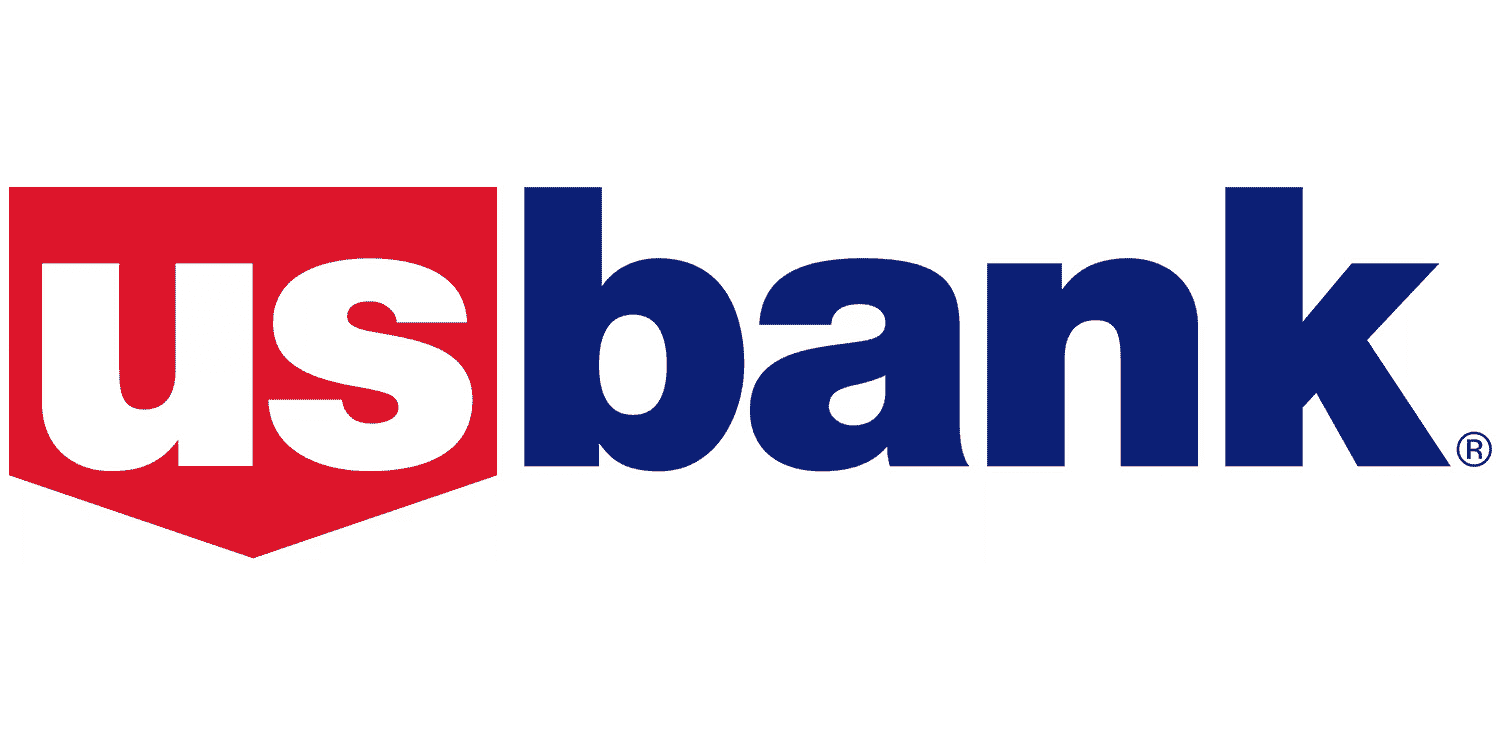Why trust NerdWallet
Sponsored partner picks for
Best Credit Card Processing Companies
| Product | Best for | NerdWallet rating | Payment processing fees | Monthly fee | Learn more |
|---|---|---|---|---|---|
on Square's secure website | All-in-one payment services | In-person: 2.6% + $0.15 Online: 2.9% + $0.30 | $0 Starts at $0/month for unlimited devices and locations. | on Square's secure website | |
on Helcim's secure website | Volume discounts | In-person: 0.4% + $0.08 Online: 0.5% + $0.25 Plus interchange | $0 | on Helcim's secure website | |
on Chase Payment Solutions℠'s secure website | Built-in banking partner and direct processor | 4.5
/5
| In-person: 2.6% + $0.10 Online: 2.9% + $0.25 | $0 for in-person payments; $9.95 and up for e-commerce payments. | on Chase Payment Solutions℠'s secure website |
on Stripe Payments' secure website | Global, online transactions | In-person: 2.7% + $0.05 Online: 2.9% + $0.30 | $0 | on Stripe Payments' secure website | |
on U.S. Bank Merchant Services' secure website, Member FDIC | Built-in banking partner with everyday deposits | In-person: 2.6% + $0.10 Online: 2.9% + $0.30 | $0 and up. | on U.S. Bank Merchant Services' secure website, Member FDIC | |
on National Processing's secure website | Low, flat-rate processing | In-person: 2.5% + $0.10 Online: 2.9% + $0.30 | $15 for Basic In-Person Package. | on National Processing's secure website | |
on Payment Depot's secure website | Tailored interchange-plus rates | 0.2% + $0.00 to 1.95%, plus interchange. | $0 | on Payment Depot's secure website | |
on Shopify Payments' secure website | Online retail businesses | In-person: 2.6% + $0.10 Online: 2.9% + $0.30 | $39 Basic plan; $105 Shopify plan; $399 Advanced plan. | on Shopify Payments' secure website | |
on Finix's secure website | Subscription-based pricing | 4.8
/5
| In-person: 0% + $0.08 Online: 0% + $0.15 Plus interchange | $79 and up. | on Finix's secure website |
on PayPal's secure website | Payment flexibility | In-person: 2.29% + $0.09 Online: 2.89% + $0.49 | $0 Standard; $5 Payments Advanced; $30 Payments Pro. | on PayPal's secure website | |
| Payment processor with reputation management tools | In-person: 2.69% + $0.00 Online: 3.49% + $0.19 | $0 and up. | |||
on NerdWallet's secure website | Online invoicing | In-person: 2.5% + $0.00 Online: 2.99% + $0.00 | $0 QuickBooks subscription required. | on NerdWallet's secure website |
Best Credit Card Processing Companies
Online: 2.9% + $0.30
Starts at $0/month for unlimited devices and locations.
on Square's website
Pros
- Offers a free mobile card reader and free POS software plan.
- Can subscribe to related services, such as payroll, that integrate with its POS system.
- No termination fees or long-term contracts.
- No chargeback or PCI compliance fees.
Cons
- Complex businesses might prefer a processor that integrates with more specialized POS systems.
Square
Best for All-in-one payment services
Online: 2.9% + $0.30
Starts at $0/month for unlimited devices and locations.
on Square's website
Pros
- Offers a free mobile card reader and free POS software plan.
- Can subscribe to related services, such as payroll, that integrate with its POS system.
- No termination fees or long-term contracts.
- No chargeback or PCI compliance fees.
Cons
- Complex businesses might prefer a processor that integrates with more specialized POS systems.
Online: 0.5% + $0.25
Plus interchange
on Helcim's website
Pros
- Businesses save when customers use cards with low interchange rates.
- Offers free POS software.
- Offers volume-based discounts automatically.
- No termination fees, long-term contracts or PCI compliance fees.
Cons
- Deposits are available within two business days; same-day deposit option is not available.
- Interchange-plus costs can be difficult to predict.
Helcim
Best for Volume discounts
Online: 0.5% + $0.25
Plus interchange
on Helcim's website
Pros
- Businesses save when customers use cards with low interchange rates.
- Offers free POS software.
- Offers volume-based discounts automatically.
- No termination fees, long-term contracts or PCI compliance fees.
Cons
- Deposits are available within two business days; same-day deposit option is not available.
- Interchange-plus costs can be difficult to predict.
Online: 2.9% + $0.25
for in-person payments; $9.95 and up for e-commerce payments.
on Chase's website
Pros
- Two-in-one processor and acquiring bank.
- No PCI compliance or cancellation fees.
- Using your bank as your processor makes deposits convenient.
- 24/7 phone and online support.
Cons
- Some hardware pricing is not readily available.
- No third-party shopping cart integrations.
- Chase’s Business Complete checking account comes with a $15 monthly service fee for some merchants.
Chase Payment Solutions℠
Best for Built-in banking partner and direct processor
Online: 2.9% + $0.25
for in-person payments; $9.95 and up for e-commerce payments.
on Chase's website
Pros
- Two-in-one processor and acquiring bank.
- No PCI compliance or cancellation fees.
- Using your bank as your processor makes deposits convenient.
- 24/7 phone and online support.
Cons
- Some hardware pricing is not readily available.
- No third-party shopping cart integrations.
- Chase’s Business Complete checking account comes with a $15 monthly service fee for some merchants.
Pros
- Highly customizable online checkout options.
- No termination fees or long-term contracts.
- 24/7 chat support.
- Can process transactions in more than 135 currencies.
- No PCI compliance fees.
Cons
- Doesn’t sell full countertop POS setups; hardware is limited to handheld terminals and card readers.
- Deposits can take up to two business days.
- No phone or email support.
Stripe
Best for Global, online transactions
Online: 2.9% + $0.30
on Stripe's website
Pros
- Highly customizable online checkout options.
- No termination fees or long-term contracts.
- 24/7 chat support.
- Can process transactions in more than 135 currencies.
- No PCI compliance fees.
Cons
- Doesn’t sell full countertop POS setups; hardware is limited to handheld terminals and card readers.
- Deposits can take up to two business days.
- No phone or email support.
Online: 2.9% + $0.30
and up.
on U.S. Bank's website, Member FDIC
Pros
- Same-day funding seven days per week for U.S. Bank checking account holders.
- No cancellation or PCI compliance fees.
- Free POS software plan available.
- 24/7 support.
Cons
- POS system onboarding assistance can be costly.
- Deposit times are not as quick for merchants using third-party bank accounts.
- Virtual terminal costs extra.
U.S. Bank Merchant Services
Best for Built-in banking partner with everyday deposits
Online: 2.9% + $0.30
and up.
on U.S. Bank's website, Member FDIC
Pros
- Same-day funding seven days per week for U.S. Bank checking account holders.
- No cancellation or PCI compliance fees.
- Free POS software plan available.
- 24/7 support.
Cons
- POS system onboarding assistance can be costly.
- Deposit times are not as quick for merchants using third-party bank accounts.
- Virtual terminal costs extra.
Online: 2.9% + $0.30
for Basic In-Person Package.
on National Processing's website
Pros
- No termination fees, long-term contracts or PCI compliance fees.
- Works with high-risk merchants.
- New merchants may qualify for a free terminal.
- 24/7 phone support.
- Compatible with multiple POS system providers, including Clover.
Cons
- Fees may be higher if you process less than $10,000 per month.
- Basic plans for processing in-person and online transactions are separate.
- Deposits take 2-3 business days for basic plans.
National Processing
Best for Low, flat-rate processing
Online: 2.9% + $0.30
for Basic In-Person Package.
on National Processing's website
Pros
- No termination fees, long-term contracts or PCI compliance fees.
- Works with high-risk merchants.
- New merchants may qualify for a free terminal.
- 24/7 phone support.
- Compatible with multiple POS system providers, including Clover.
Cons
- Fees may be higher if you process less than $10,000 per month.
- Basic plans for processing in-person and online transactions are separate.
- Deposits take 2-3 business days for basic plans.
to 1.95%, plus interchange.
on Payment Depot's website
Pros
- Businesses save when customers use cards with low interchange rates.
- No cancellation or PCI compliance fees.
- Compatible with several POS hardware providers, including Clover.
- 24/7 phone support.
Cons
- Markups vary by business.
- Website doesn’t disclose hardware pricing.
- Interchange-plus costs can be difficult to predict.
Payment Depot
Best for Tailored interchange-plus rates
to 1.95%, plus interchange.
on Payment Depot's website
Pros
- Businesses save when customers use cards with low interchange rates.
- No cancellation or PCI compliance fees.
- Compatible with several POS hardware providers, including Clover.
- 24/7 phone support.
Cons
- Markups vary by business.
- Website doesn’t disclose hardware pricing.
- Interchange-plus costs can be difficult to predict.
Online: 2.9% + $0.30
Basic plan; $105 Shopify plan; $399 Advanced plan.
on Shopify's website
Pros
- Hundreds of e-commerce website templates available.
- Can customize checkout page.
- Higher-tier plans offer less expensive online processing rates (as low as 2.5% plus 30 cents).
- No long-term contracts.
Cons
- E-commerce plan with monthly fee is required to use Shopify Payments.
- Monthly POS subscription costs can be expensive.
Shopify Payments
Best for Online retail businesses
Online: 2.9% + $0.30
Basic plan; $105 Shopify plan; $399 Advanced plan.
on Shopify's website
Pros
- Hundreds of e-commerce website templates available.
- Can customize checkout page.
- Higher-tier plans offer less expensive online processing rates (as low as 2.5% plus 30 cents).
- No long-term contracts.
Cons
- E-commerce plan with monthly fee is required to use Shopify Payments.
- Monthly POS subscription costs can be expensive.
Online: 0% + $0.15
Plus interchange
and up.
on Finix's website
Pros
- No long-term contracts.
- Subscription model can help high-volume businesses save money.
- Transparent fee breakdowns.
- 24/7 emergency phone and email support.
- No PCI compliance fees.
Cons
- Limited POS hardware options.
- Lacks direct accounting software integrations.
Finix
Best for Subscription-based pricing
Online: 0% + $0.15
Plus interchange
and up.
on Finix's website
Pros
- No long-term contracts.
- Subscription model can help high-volume businesses save money.
- Transparent fee breakdowns.
- 24/7 emergency phone and email support.
- No PCI compliance fees.
Cons
- Limited POS hardware options.
- Lacks direct accounting software integrations.
Online: 2.89% + $0.49
Standard; $5 Payments Advanced; $30 Payments Pro.
on PayPal's website
Pros
- One of the most commonly used payment processing platforms.
- Easy to use and integrate with website hosts and shopping carts.
- Transparent fixed fees in 25 currencies.
- No PCI compliance fees.
Cons
- PayPal’s offerings are vast and can be difficult to grasp quickly.
- No offline mode.
- Accepting online transactions involves additional monthly fees, depending on your gateway.
PayPal
Best for Payment flexibility
Online: 2.89% + $0.49
Standard; $5 Payments Advanced; $30 Payments Pro.
on PayPal's website
Pros
- One of the most commonly used payment processing platforms.
- Easy to use and integrate with website hosts and shopping carts.
- Transparent fixed fees in 25 currencies.
- No PCI compliance fees.
Cons
- PayPal’s offerings are vast and can be difficult to grasp quickly.
- No offline mode.
- Accepting online transactions involves additional monthly fees, depending on your gateway.
Pros
- In-house payment processing.
- Simple pricing model.
- Free next-day funding. Option for free same-day funding in some cases.
- Offers a virtual terminal.
Cons
- Limited integrations.
- Potential early termination fees.
- Doesn't work with some business types.
Payanywhere
Best for Payment processor with reputation management tools
Online: 3.49% + $0.19
and up.
Pros
- In-house payment processing.
- Simple pricing model.
- Free next-day funding. Option for free same-day funding in some cases.
- Offers a virtual terminal.
Cons
- Limited integrations.
- Potential early termination fees.
- Doesn't work with some business types.
QuickBooks Payments
Best for Online invoicing
Online: 2.99% + $0.00
QuickBooks subscription required.
Pros
- Convenient mobile app.
- Seamless QuickBooks accounting integration.
Cons
- Limited customer support hours.
- Limited hardware options on QuickBooks POS.
Our picks for best credit card processing companies
Square
Helcim
Stripe
PayPal
National Processing
Finix
Chase Payment Solutions
Shopify Payments
U.S. Bank Merchant Services
Limited time offer
Payment Depot
Payanywhere
QuickBooks Payments
Need a high-risk payment processor?
What is credit card processing?
How to choose a credit card processing company
💬 From our Nerds: Local credit card processing companies can be an option, too
How much does credit card processing cost?
Interchange fees - Assessment fees are paid to the card networks.
- Payment processor fees are the “cuts” or “markups” that go toward the payment processing company for facilitating the transaction.
- Monthly subscription fees can cost upward of $99, but lots of companies don’t charge them. However, credit card processing companies that charge monthly fees may offer lower processing rates in exchange.
Credit card processing pricing models

















